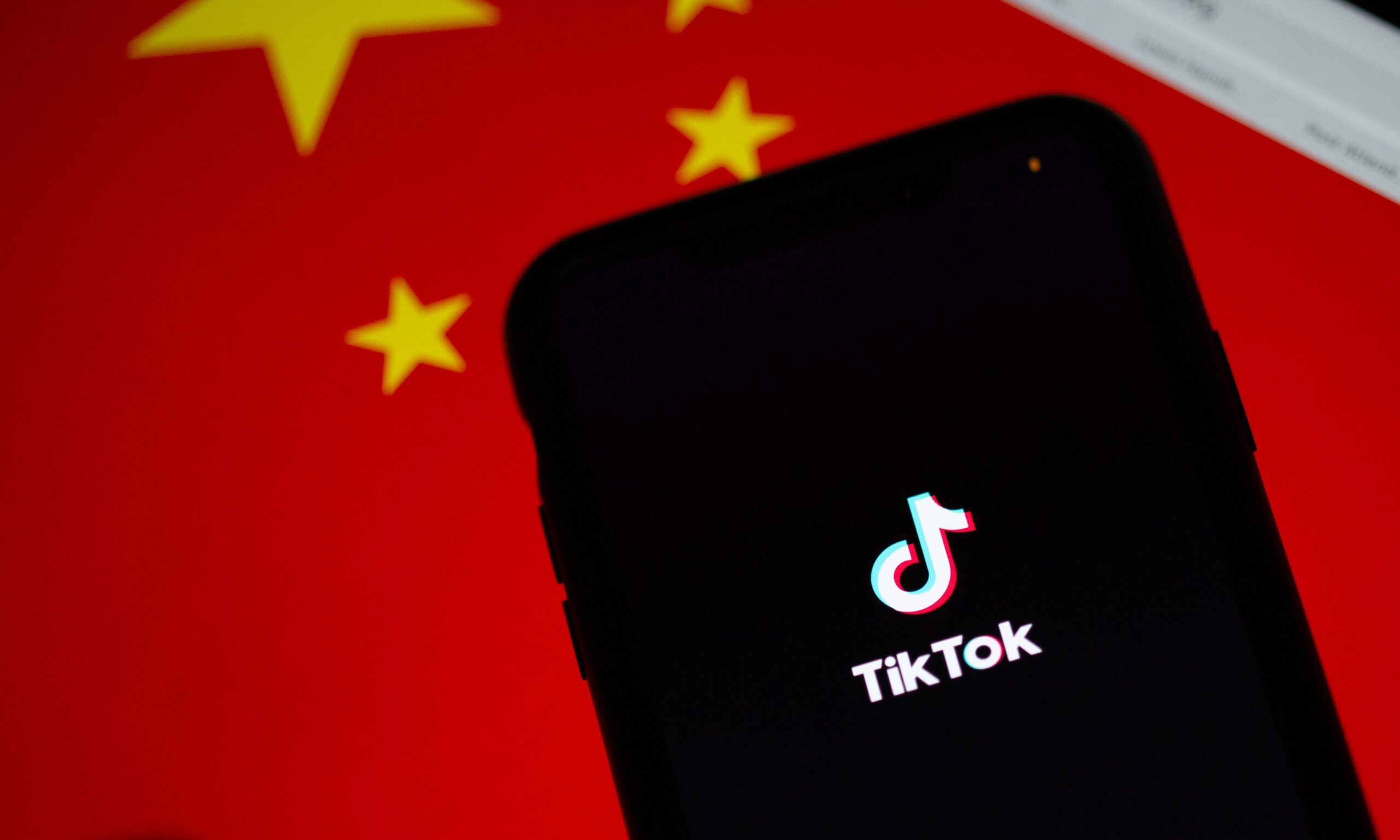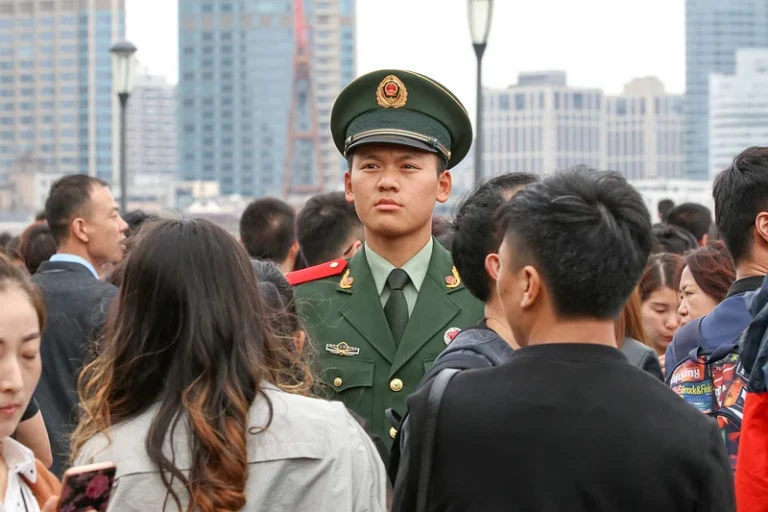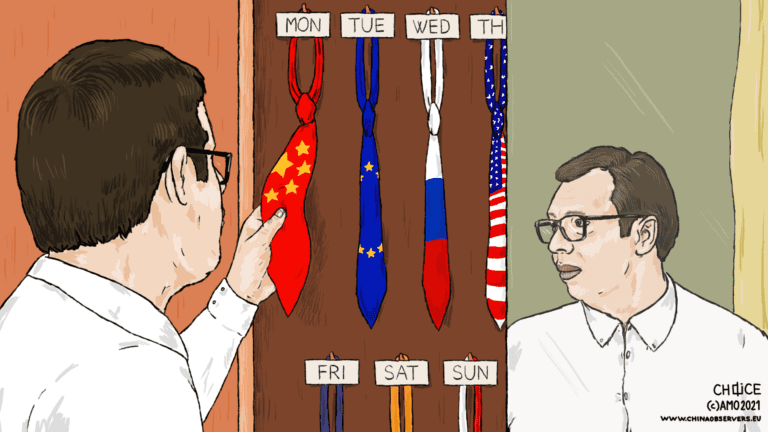TikToker’s Trip to China: The Influencer or the Influenced?

This article is part of a series of articles authored by young, aspiring China scholars under the Future CHOICE initiative.
China has been cultivating a network of Western influencers across various platforms to shape global narratives on issues critical to its foreign policy. These influencers come from diverse countries and backgrounds and are lured using a complex and often subtle system of incentives that can be difficult to untangle. Jan Michálek, a Czech TikToker with almost a million followers, found himself entangled in this network – a situation he may not have foreseen.
China’s Influencer Army
After returning from an all-expenses-paid trip to Beijing, Michálek found himself accused of spreading Chinese propaganda. The influencer community was quick to criticize him, releasing videos and interviews with titles such as “Czech Influencer Sold Himself to China” or “Honzi Michálek – The Best Chinese Propagandist.” While the case of Jan Michálek may stem from naivety, the phenomenon of Western influencers profiting from spreading Chinese misinformation and disinformation is not new.
In fact, many foreign influencers living in China have been promoting Chinese narratives online for years. Among them are Russian influencer Vladislav Y. Kokolevskiy, American influencer Jerry Kowal, and Israeli Raz Gal-Or, who lead the pack in the number of followers, with Kokolevskiy alone boasting over 25 million followers. As for Central Europe, Slovak influencer PopMatta has gained a substantial following in China for her videos comparing her home country to China, often portraying the latter as safer, cleaner, and better organized. Unlike Michálek’s naive exploration of the country, these influencers have spent years in China and often speak Chinese fluently.
Chinese state media personnel disseminate cultural, lifestyle, and political content that aligns with the CCP’s agenda. Foreign influencers then endorse these Chinese personalities and narratives, which are, in turn, amplified by state media channels. This strategy, called “polyphonous communication” is further enhanced by inauthentic media campaigns that broaden the reach of CCP narratives. As Beijing seeks to expand its global influence, foreigners with established audiences in their home countries serve as ideal messengers for promoting pro-Chinese narratives abroad. This is because they know how to communicate effectively with their followers while appearing objective.
In addition to promoting its narratives abroad, Beijing also leverages Western influencers to reinforce domestic messaging. The perspectives of foreigners, often perceived as both more neutral and “exotic,” can attract Chinese audiences, lending credibility to different narratives about both foreign and domestic policy. This approach mirrors Beijing’s strategy of recruiting influencers from ethnic minority communities to depict regions like Xinjiang and Tibet in a light favorable to the regime.
Red Carpet Treatment
These mechanisms were apparently unknown to Michálek when he was first contacted by a Czechia-based agency (the influencer did not provide its name) two years ago. The agency offered him a collaboration with a Chinese vlogger who had allegedly studied and lived in Czechia, to help him build a following there. The vlogger produced content featuring traditional Chinese recipes, tea-making, and explorations of Chinese nature. Michálek claims he asked the agency if the vlogger was linked to any suspicious activities and was firmly assured that he was not. Reassured by these responses and the seemingly harmless content, Michálek concluded the collaboration posed no issues.
This is not an isolated case of an influencer being approached by a private agency or company based outside China. For instance, in 2023, Shein – a fast-fashion company founded in China and now based in Singapore, which faces allegations of forced labor and other human rights abuses – invited a group of social media influencers on a paid trip to Guangzhou. This resulted in videos produced by the influencers showcasing clean factories and content workers.
Going back to Michálek, the same agency approached him again about six months ago with an offer of a trip to Beijing, with the Chinese side offering to cover his flights and other expenses and even take him to a destination of his choice. Michálek accepted and he claims that he himself chose Xinjiang, where he was accompanied (and filmed) by a Czech-speaking crew from China Radio International (CRI). Despite not knowing any Chinese, Michálek insists now that he asked locals “critical questions” and highlighted things he found unusual. He also claimed he did not feel as though he was promoting anything, which is why he believes CRI never published the footage. It was only after a phone call with an acquaintance that he became concerned about a possibility of the footage being used for propaganda purposes.
All of this follows a familiar Chinese playbook. Individuals who have some influence over domestic discourse – such as politicians, academics, journalists, and increasingly social media influencers – are often approached with seemingly innocent opportunities to discuss shared interests. They may then be invited to visit China, with all expenses covered by the Chinese side. During these visits, they are accompanied by individuals and companies affiliated with the party-state, such as the CRI crew in Michálek’s case, who make sure to attend to their needs while fostering the impression that they are honored guests. These trips are often followed by offers of paid collaborations, which may appear low stakes at first but can ultimately result in unintended consequences, including fostering favorable attitudes toward Chinese narratives among relevant audiences.
Carrots and Sticks
Although influencers like Michálek may face criticism for being paid by Beijing to promote its propaganda, China’s approach to cultivating influencers is often more subtle and difficult to untangle, combining restrictions, nudges, and rewards. The rewards go beyond paid trips to include seminars, contests, campaigns, and other perks. The content influencers post may appear to be their own, yet it is often co-created in specialized influencer studios with the help of so-called “multi-channel networks” (MCNs), which are organizations dedicated to spreading CCP propaganda while helping influencers monetize their content on platforms like YouTube.
Despite being officially banned in China, YouTube maintains agreements with MCNs, allowing monetization of CCP-friendly content, thereby creating profits from propaganda or disinformation. While YouTube labels state media channels as “government-funded,” this does not extend to influencers, as there is no concrete way to prove external influence over their content. Moreover, YouTube’s algorithm prioritizes new content, giving MCNs the opportunity to flood the platform with CCP-friendly videos that often outrank more critical material. In stark contrast to the favorable treatment of CCP-friendly influencers, Western journalists investigating regions like Xinjiang face harassment, surveillance, and restricted access, while the Chinese public is encouraged to view them as agents of foreign influence.
The Influencer Community and Public Opinion
Michálek’s case stands out due to his openness about the events leading to his trip and his interactions with CRI. Most influencers accused of spreading CCP-friendly narratives deny being paid or otherwise influenced by China. The fact that Michálek was surprised by basic aspects of local culture, such as Kazakh buzkashi (a traditional sport) and unable to recall the names of Xinjiang and Guangzhou shows his lack of preparation and research ahead of the trip. This, paired with his casual acceptance of assurances from the Chinese agency, indicates that he did not consider the broader implications of CCP propaganda, which was confirmed by Michálek himself. Michálek’s story underscores how the public’s growing reliance on digital platforms and influencers for news and opinions has changed the responsibilities of content creators. Influencers like Michálek may not take geopolitics and influence operations into account when agreeing to trips to authoritarian states like China, yet their actions can significantly shape public opinion. Indeed, the opinion of Michálek’s audience will now depend on how other influencers respond to this story.
Written by
Barbora Kotuľáková
Barbora Kotuľáková is a BSc. Psychology student at the University of Amsterdam specializing in Social Psychology. Her areas of interest include digital platforms and their implications for propaganda and foreign influence operations.


